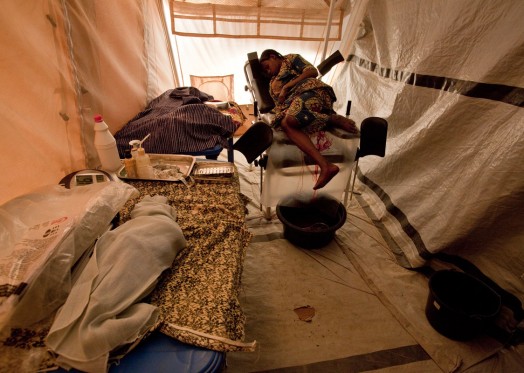Sahel’s shifting sands

A new baby boy is born under a tent in the Tabareybarey refugee camp in northern Niger. The young Tuareg mother lays silent on the delivery bed, still bleeding but in good health: she will soon walk back to her wood and plastic shack in the windblown desert wasteland which is now home to 8,000 destitute people who crossed the border last year, having lost everything in the Malian war. They will not go back soon.
The whole Sahel region has plunged into a dangerous cycle of insecurity and drought-stricken Niger, one of the poorest countries in the world, is carrying a heavy burden. Boko Haram insurgents are threatening the southern provinces where the refugee influx is on the rise; a wave of al-Qaeda sponsored terrorist attacks and kidnappings have forced the army to deploy troops and close roads in the northern regions; and the government, in a hazardous move, has agreed to expand the French and US military presence, which has been upgraded with the recent arrival of four MQ-9 Reaper drones intended to patrol Niger’s 5,000-plus mostly troubled boundary lines.
The overthrown of Colonel Qaddafi’s regime has upset the balance of powers in the Sahel. After his fall hundreds of Tuaregs serving in the Lybian army streamed back to Mali bringing with them heavy weapons and binding together with Islamist groups determined to carve out an independent state. The French intervention saved the Bamako government and disbanded the insurgents, but hasn’t fended off the threat. In the vast no man’s land of the Sahara jihadists and criminal gangs have flourished for years, building up enormous reserves of cash through smuggling, trafficking drugs, tobacco and human beings across the region’s porous borders. From Algeria and Lybia in the North to Nigeria in the South, a dreadful array of well armed extremist groups have sprung up, and it won’t be easy to confront them.
Niger is now set to become the West’s counter insurgency platform in Africa. But this (Pakistan docet) runs the risk of creating a backlash in a country where a coup d’etat is always around the corner. Niamey is inviting Paris to help in securing the borders. But relations with the former colonial power are not as smooth as they seem. The thorny dispute under way with the French energy multinational Areva on uranium mining epitomizes an unbalanced relationship: while in France one of every three or four light bulbs is lit thanks to Nigerien uranium in Niger, the world’s fourth-largest uranium producer, 90% of the population has no access to electricity.





